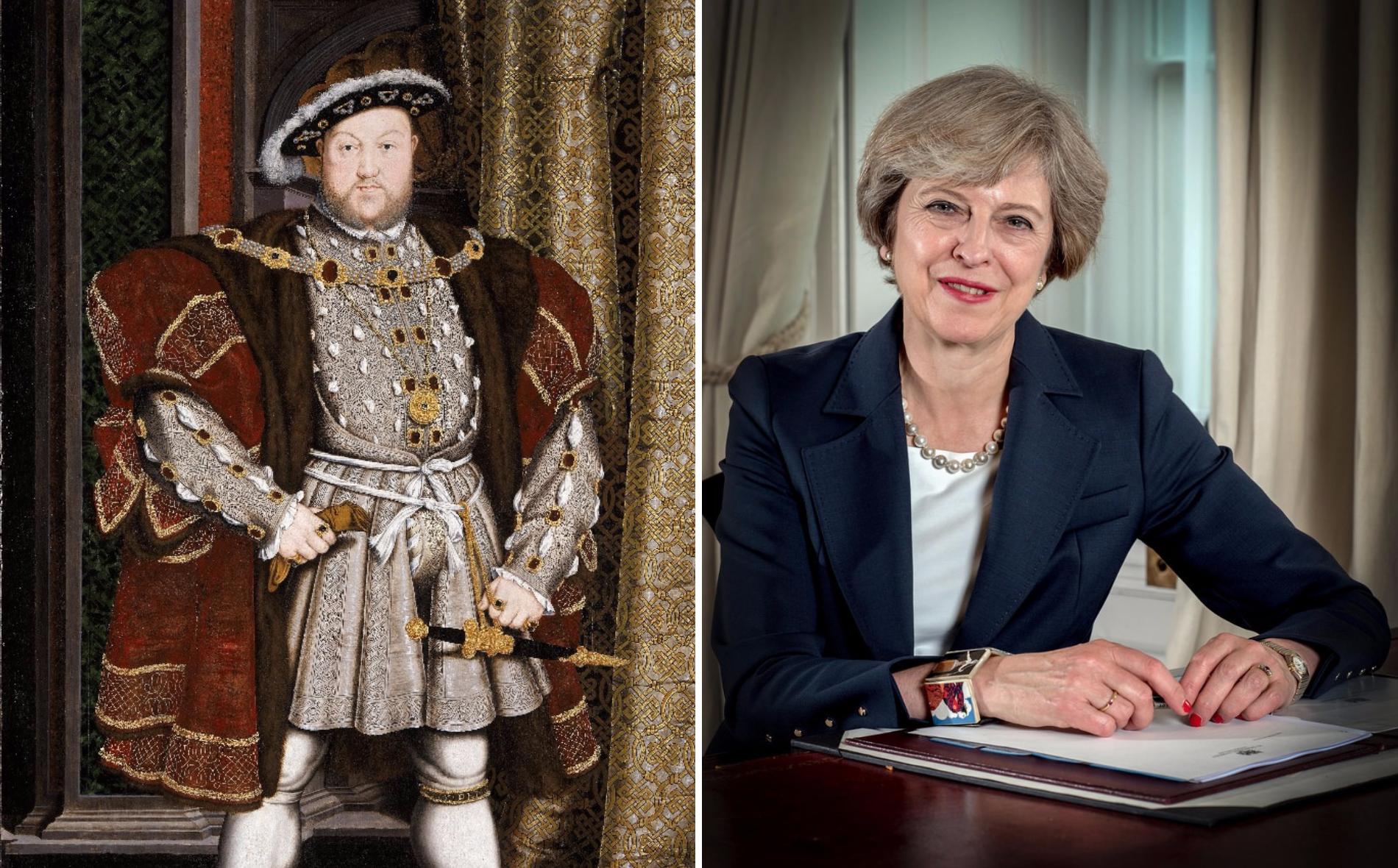Britain is officially leaving the European Union, with Prime Minister Theresa May set to begin the process in March. But Ms May isn’t the only leader making headlines about Brexit. Henry VIII has also popped back up.
What’s a 470-year-old monarch got to do with anything?
Henry VIII is best remembered for being the one who had six wives. But as well as divorcing and beheading four women, the King was also responsible for bringing in something called the Statute of Proclamations way back in 1539.
This basically gave him powers to legislate by proclamation, so he could make or change laws without going through either of the Houses of Parliament. Those powers still exist and are now dubbed ‘Henry VIII clauses’ in his honour.But don’t all bills have to go through Parliament these days?
Normally, yes. The standard way something becomes law is that a bill is proposed in either the House of Lords or the House of Commons. It will then go to the other House for the bill to be scrutinised and amendments proposed. Once the bill has gone through several readings and Committee stage, and Royal Assent has been given, it finally becomes law.
However, sometimes the Government will add a Henry VIII clause into the bill, which allows them to repeal or amend it after it’s become an Act of Parliament – crucially without any further parliamentary scrutiny.
And what’s this got to do with Brexit and our rights?
The task of leaving the European Union will be enormous, not least because many of our laws come from EU legislation. Employment rights such as maternity pay, for example, are protections given to us from European Union laws.
The Government don’t want these to disappear overnight, so they’ll be looking to convert thousands of European rules into UK law before Brexit is completed in mid-2019. They intend to do this in the form of a Great Repeal Bill, which will also repeal European Communities Act 1972, the historic law that took Britain into the EU. Government sources say they will soon be releasing proposals on this in the form of a White Paper. And those proposals will include Henry VIII clauses.
Why does this matter?

As the Government knows, plans to use Henry VIII clauses in this context will be hugely controversial. In fact, the Liberal Democrats have labelled the plan, “the biggest power grab since Henry VIII”. This is because employing the clauses would mean that neither House of Parliament would be able to consider amendments to laws that will impact some of our key rights – for example, trade, immigration and workers’ rights. There is concern that the Government could use the powers to pick and choose which elements of EU law to keep or replace without opening the issue up to proper Parliamentary scrutiny.
According to the Government, it’s all to do with timing. Once Theresa May formally begins Brexit negotiations, she will only have two years to transform all of the EU laws the Government wants to keep into UK law. “We would be converting EU law into British law forever otherwise,” a source said.
The Lords Constitution Committee has, however, expressed serious concerns, with the Committee’s chairman, Lord Lang, stating that, “Scrutiny must not be sidelined.”
The White Paper is likely to be published at the end of the month, and the Henry VIII clauses could be the most controversial bit. It will be the beginning of an immense and difficult task, but with many of our rights and freedoms protected by EU law, it will be a crucial time for ensuring that our rights are upheld.
Want to know more about Brexit and Human Rights?
- See this piece on how Brexit could affect our human rights
- Read plans for Brits to keep some EU rights post-Brexit
- Check out the reaction to the Lords proposing amendments to the bill







